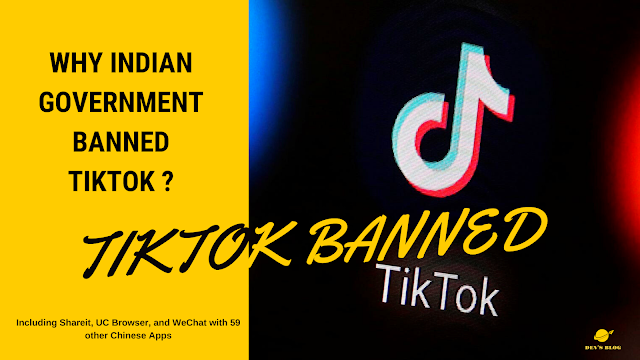TikTok Banned: Including Shareit, UC Browser, and WeChat with 59 other Chinese Apps bans by the Indian Government. Indian Government Banned Tiktok- The Government on Monday issued a release on the ban of 59 mobile apps that are prejudicial to the safety of the state and public order. TikTok has been banned by the govt., together with 58 more apps including Shareit, UC Browser, WeChat, and others. The common measure to those various apps? They're all made by Chinese companies. the govt. in its notice stated that these apps are prejudicial to sovereignty and integrity of India, defence of India, security of the state, and public order. As per a release from the Ministry of Electronics and IT (MEITY), the ministry has blocked the apps under the provisions of Section 69A of the IT Act, also as provisions of the IT rules 2008, saying, “in view of the data available they're engaged in activities which are [sic] prejudicial to sovereignty and integrity of India, d
.png)






